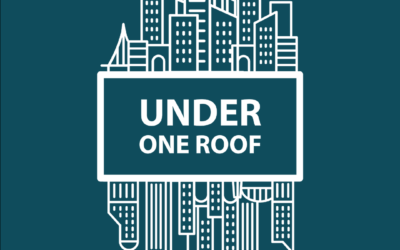The Ideal Landlord

To draw attention to an emerging private rental housing market, the project titled “Understanding tenants and landlords in Romania”, ethically approved by the University of Bucharest, invited the public to reflect on the idea of the ‘Ideal Landlord’. I warmly thank the 18 contributors (homeowners, tenants, landlords) as speaking publicly is an act of courage.
To note, the Romanian language does not possess different words for homeowners and landlords, both are just ‘property owners’ or ‘proprietors’ (‘proprietari’). This is culturally significant as words encapsulate how we relate to the world. It suggests a more equal relationship between those inhabiting a dwelling (homeowners, tenants or ‘tenureless’ household members) and those who own it (homeowners, landlords, the state). The fact that Romania has been historically a country of homeowning peasants meant that the medieval word ‘landlord’ (‘moșier’) remained tied to landed estates (‘moșii’) and did not transfer to housing.
While ‘ideals’ belong to the imaginary, they do nonetheless guide our expectations and actions. The trope Bad Landlord abounds in public discourses and academic literature referring to those who demand ever-higher rents, offer poor housing quality, tenure insecurity, and discriminate at whim. This framing reflects contexts of pressured rental markets where landlords have the upper hand (a ‘landlord-market’, e.g. in the UK or US) but not necessarily the Romanian ‘tenant market’, where the competition for tenants is greater than that for properties. So, what would the ‘Ideal Landlord’ represent in Romania?
Our contributors appreciated a certain relational distance between a tenant and a landlord, for instance by use of bank transfer (yet, the practice of rent paid in cash is still more common) and as few as possible visits to the property unless required for maintenance and repairs. The ideal landlord resembles therefore that of a good neighbour: you do not know they exist until you need them:
How to be the ideal landlord? Not to be too nosy, not to disturb me too often, to solve the problems related to the property in a timely manner.
Three rich sets of landlord-attached adjectives described three dimensions of tenant/landlord interaction related to: (1) the management of property, e.g. ‘reliable’, ‘responsible’, ‘serious’, ‘efficient’; (2) social manner, e.g. ‘kind’, ‘polite’, ‘friendly’, ‘approachable’, ‘open’; and (3) relational style, e.g. ‘empathetic’, ‘understanding’, ‘flexible’, ‘malleable’, ‘receptive’, ‘lenient’. The first set of adjectives describes what was considered to be a contractual duty of the landlord, and the last two emphasise the fact that the tenant/landlord relationship is not just a market but also a social interaction. The last one in particular was considered to be a welcome attitude, so that tenants can feel at home in the rented accommodation or to be able to overcome a somewhat more difficult period in their life.
[The ideal landlord] should be quite flexible with the tenant’s requirements so that the tenant can make small changes in the premises in order to feel at home.
Also, the owner should be understanding if there are certain exceptional situations in which, let’s say, maybe the tenant couldn’t pay the rent one month, or something else happened.
More ideas are presented in the video (e.g. about financial transparency, contracts, rent levels), ideas which might appear contentious, challenging or simply ‘natural’. Nonetheless, I would like to end by emphasising the issue of discrimination, as we see below, an issue disputed even by the only collaborator (tenant) who raised it explicitly:
I have never been to view a rental where I saw they have preferences for certain people. For lodgers, almost all ads stated they would prefer a female not a male. For me, this is an advantage, but it doesn’t seem right. Where they don’t want pets, I can understand why, especially if they had bad experiences… I also disagree when owners reject smokers. I may understand if people smoke in the whole home… but I personally smoke on the balcony or in the kitchen. Sometimes I do have visitors in the living room and to avoid moving them around, interrupting the conversation, I let them smoke in the living room. But this happened…, twice a year? So, I don’t think it would be that disturbing.
Dr Adriana Mihaela Soaita
University of Bucharest and University of Glasgow
The research was funded by the European Union’s Horizon 2020 research and innovation programme under the Marie Skłodowska-Curie grant agreement No 101059188. The views expressed in this video reflect solely the opinions of each contributor and not those of the Principle Investigator, the University of Bucharest or the Funder.

By Adriana Soaita
You may also like…
Redefining Home: Rental Challenges and Reforms with Kim McKee
In the latest episode of the Under One Roof podcast, I welcome Professor Kim McKee from the University of Stirling to discuss the evolving landscape...
The rise of algorithmic tenant referencing in England’s private rented sector
By Alison Wallace, Roger Burrows, David Beer, Alexandra Ciocanel and James Cussens. Tenant referencing is a critical aspect of accessing a home in...
Making Private Rental Housing Age-Friendly in Flanders: Understanding Landlords’ Perspectives
In this blog post, based on a small research project in collaboration with second-year bachelor students from Hasselt University, Eva Severens looks...



0 Comments